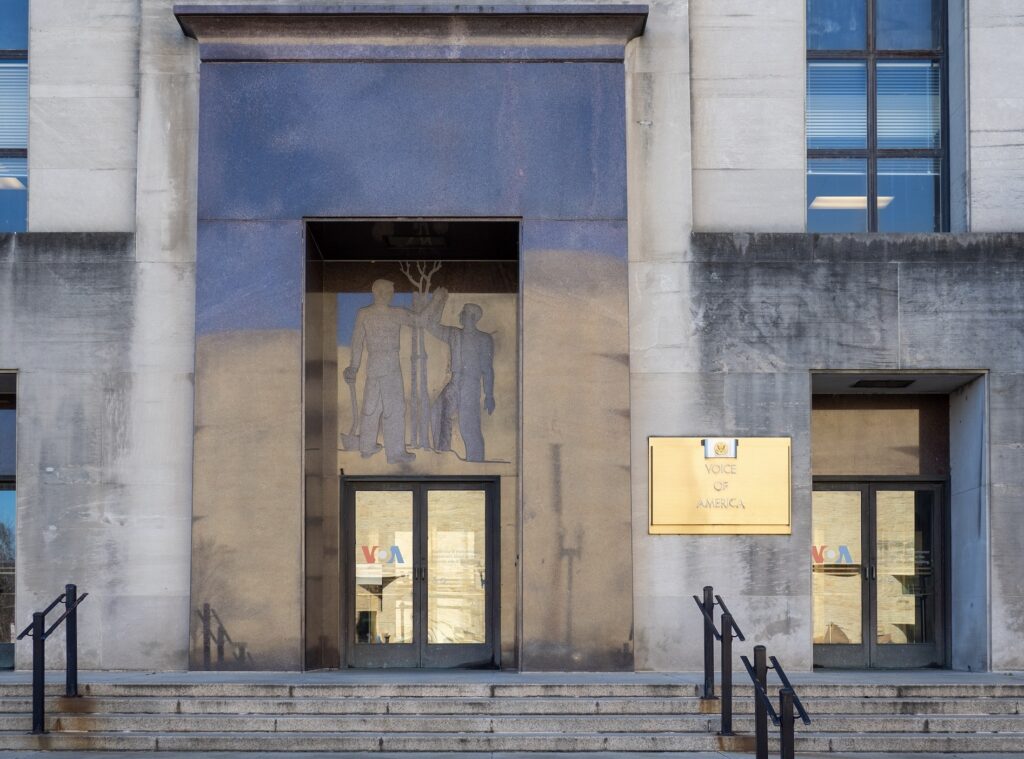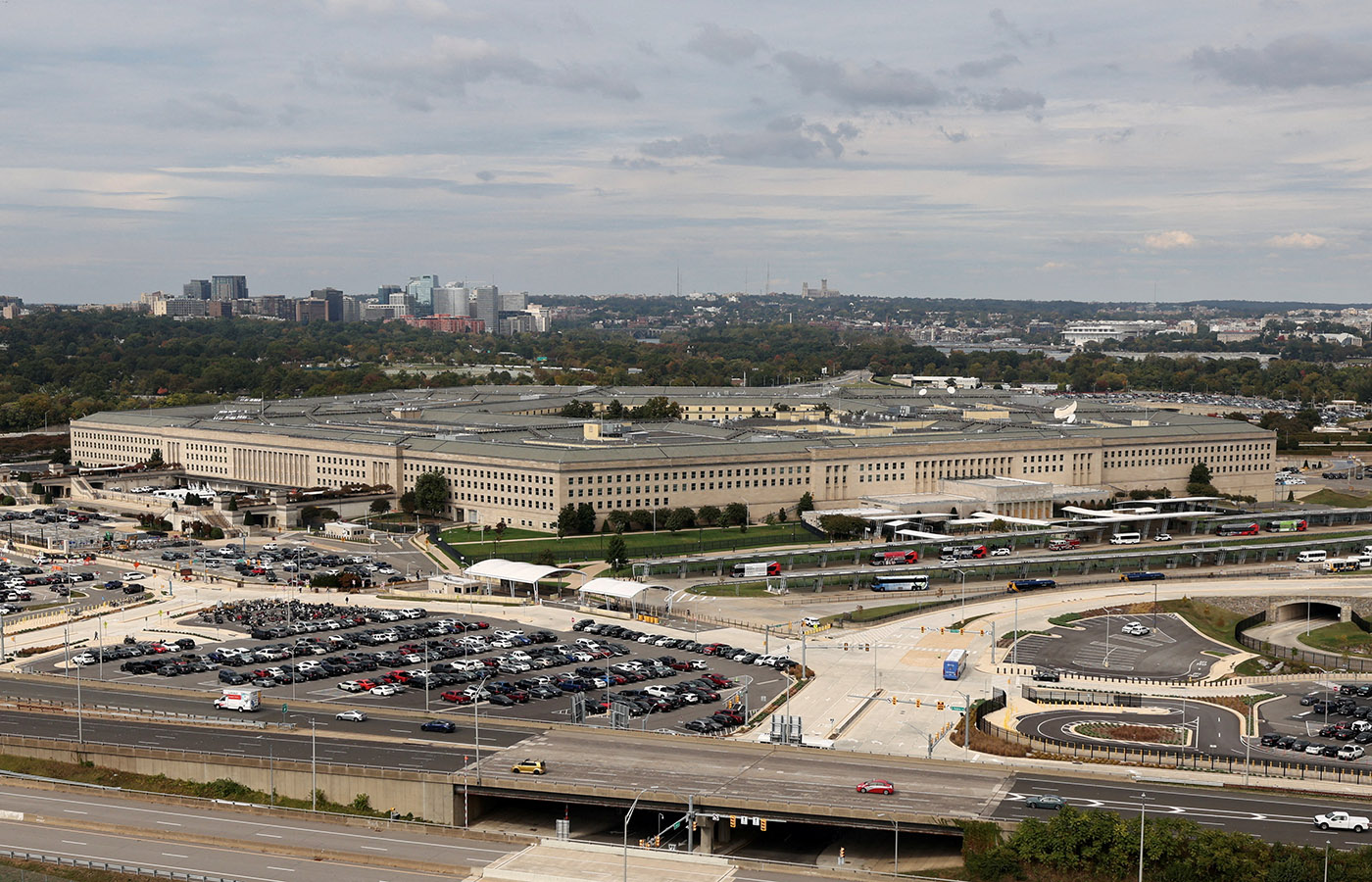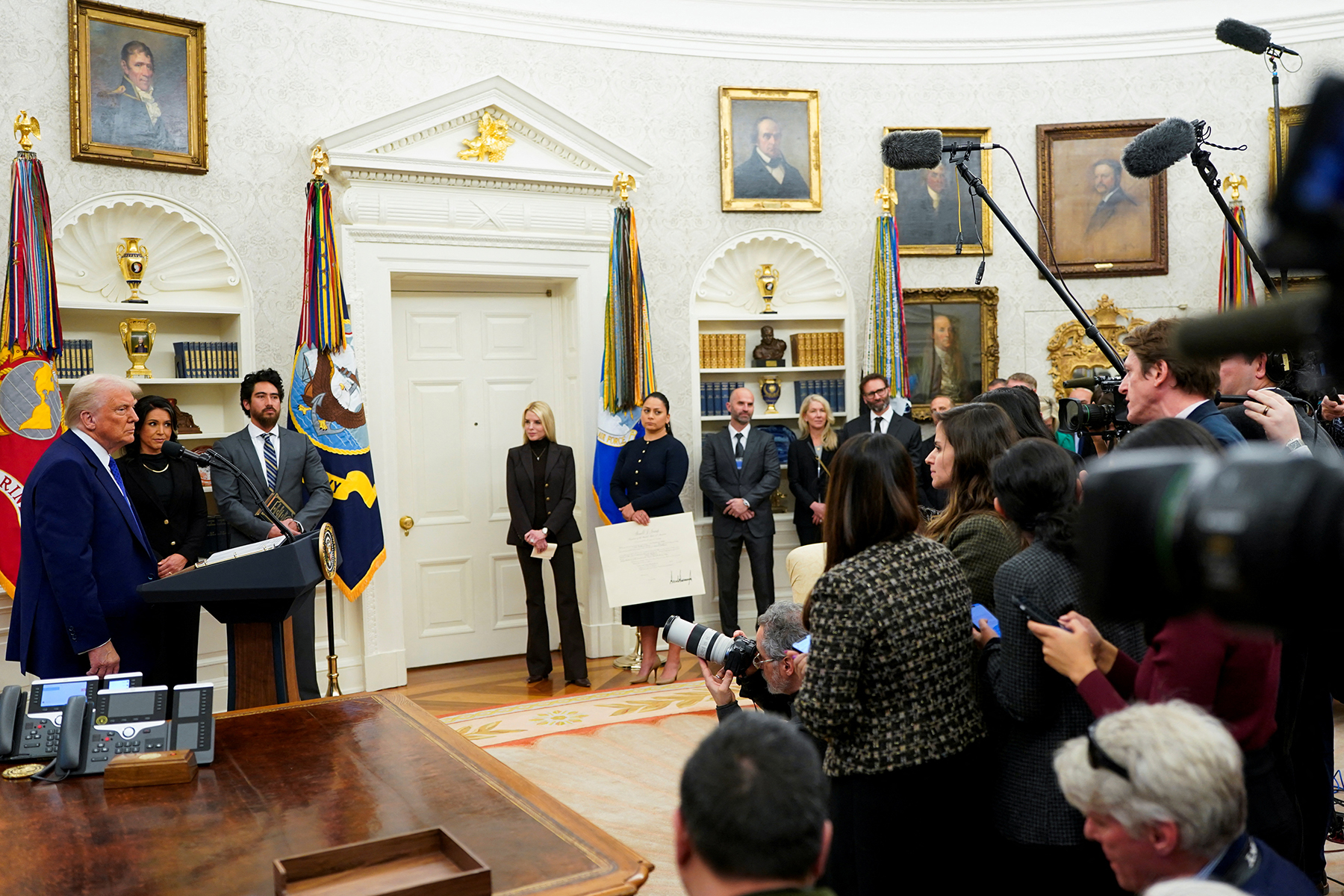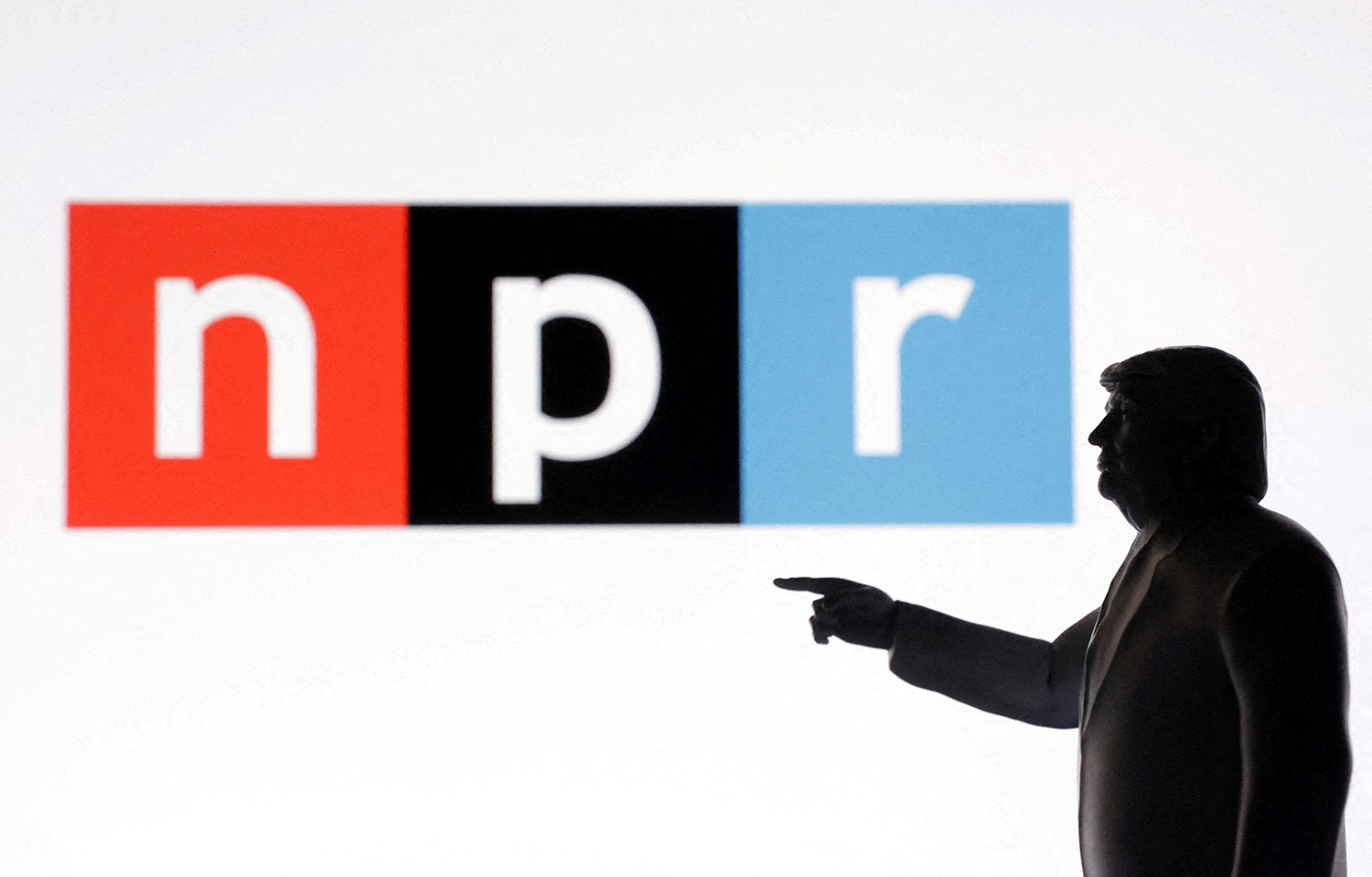By Soraya Ferdman
Michael Pack, the Chief Executive Officer of the U.S. Agency for Global Media (USAGM), the federal agency overseeing Voice of America and other state-run broadcast networks, will no longer be able to intervene in the day-to-day editorial decisions of agency journalists, a federal judge has ruled.
Issued on November 20th by U.S. District Court for the District of Columbia Chief Judge Beryl A. Howell, the preliminary injunction bars Pack from “influencing personnel actions against individual journalists or editors, attempting to influence content through communications with individual journalists or editors, and investigating purported breaches of journalistic ethics.”
Since his confirmation as the CEO of USAGM in June, Michael Pack has taken a number of controversial steps to address the network’s allegedly “liberal bias.” Between June and October Pack fired senior staff, intervened in election coverage, and investigated journalists for alleged anti-Trump bias.
The attempts to interfere in the editorial process prompted journalists to sue Pack in October on the basis that his actions had violated the statutory “firewall” Congress had created to protect USAGM journalists from Executive branch intrusion. They also argued that Pack had violated their First Amendment rights by creating an atmosphere where journalists “constantly worry” that they could be “terminated for overseeing coverage of a story that [defendants] do not agree with.”
In response, Pack’s lawyers argued that because the USAGM journalists are civil servants, their speech is subject to limitations based on the Supreme Court’s ruling in Garcetti v. Ceballos (2006), which found that public employees do not have a First Amendment protection for speech as part of their official duties.
Press freedom groups rejected this comparison. In an amicus brief, attorneys with the Reporters Committee for the Freedom of the Press (RCFP) and sixteen other organizations argued that when state actors create news organizations, those organizations “are subject to full First Amendment protections from state interference in their editorial discretion.”
“Congress, had it wanted to, could have founded broadcasters that did nothing but transmit State Department talking points. Instead, Congress established a short, closed list of constraints on broadcasting content … and otherwise guaranteed the networks an independence equal to that of private news organizations. That is, Congress mandated professional journalism of the highest quality, a mandate that law, regulation, and functional norms have protected for decades. VOA is clearly a First Amendment institution,” the amicus brief states.
Howell did not go as far as to agree that journalists employed by the state are granted all of the same protections as private-sector journalists, but she did reject Pack’s argument that federal journalists have no First Amendment rights.
Grayson Clary, who is a Stanton Foundation National Security/Free Press Fellow at RCFP, told First Amendment Watch that he saw the ruling as a victory even if Howell stopped short of granting state-sponsored journalists the same level of protections as those enjoyed by journalists in the private sector.
“On practical terms, this ruling will prevent Pack from doing a lot of the things he insisted he had the power to do, and will help to cure the chilling effect his actions have had. At the doctrinal level, Howell agreed that applying Garcetti to a reporter’s job—even if their work is on the federal dime—would make no sense. It would mean that the government would have no way of making sure VOA’s product was credible to their audiences.”
Reporters Committee for Freedom of the Press
Tags




